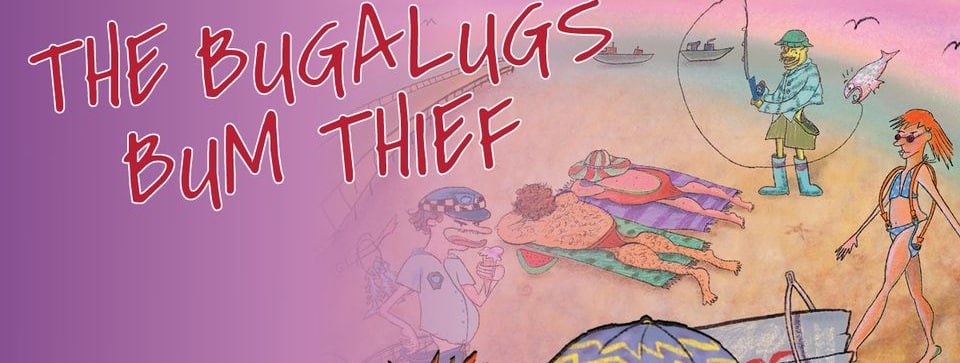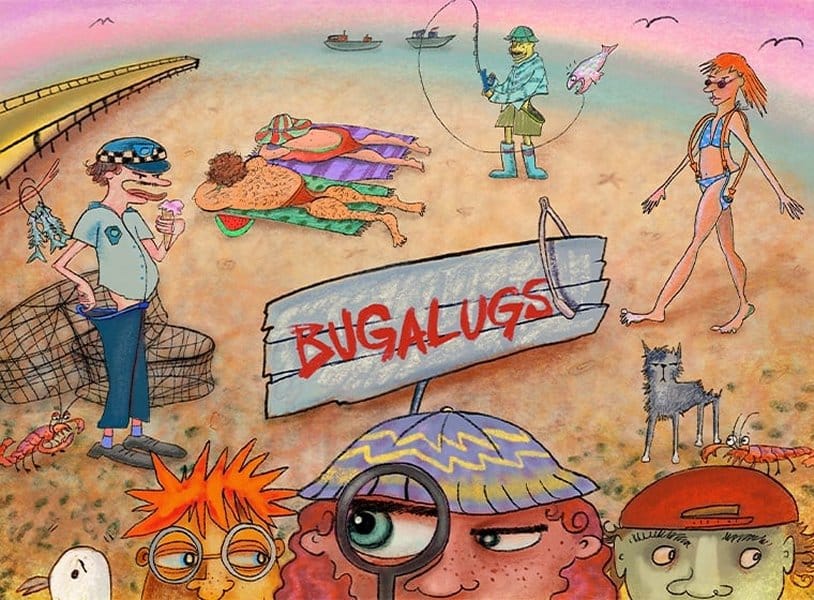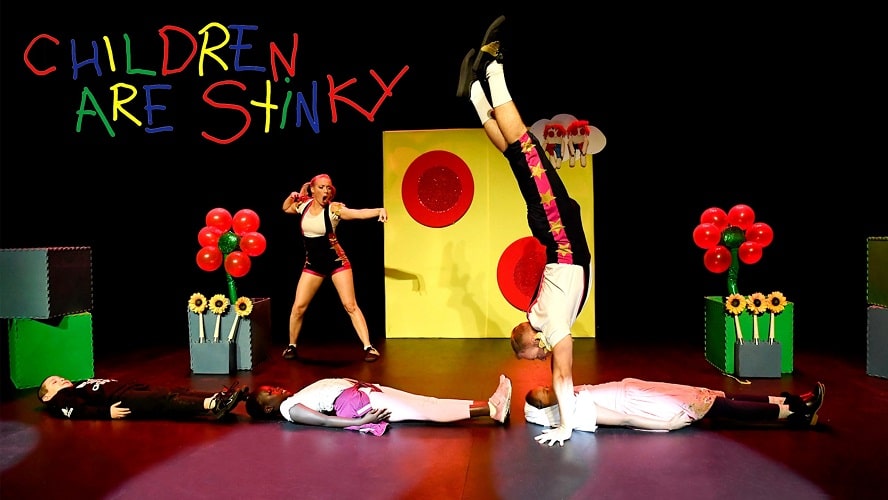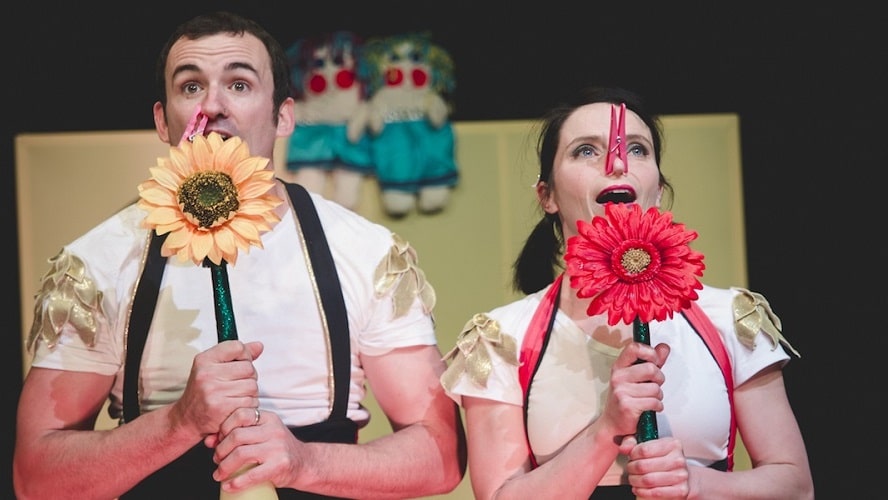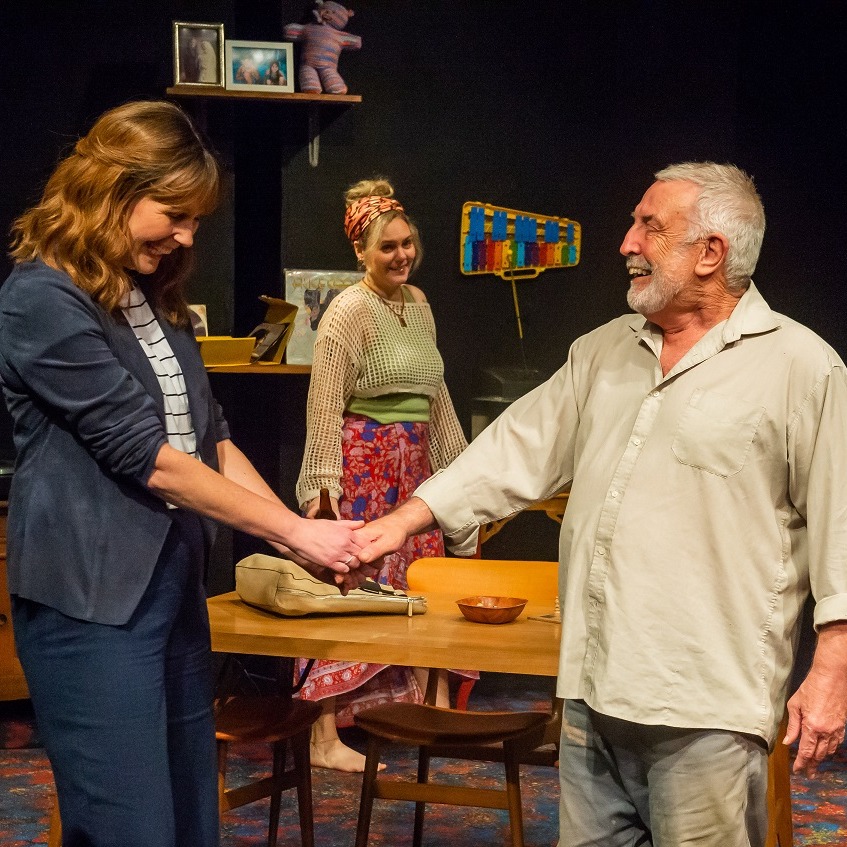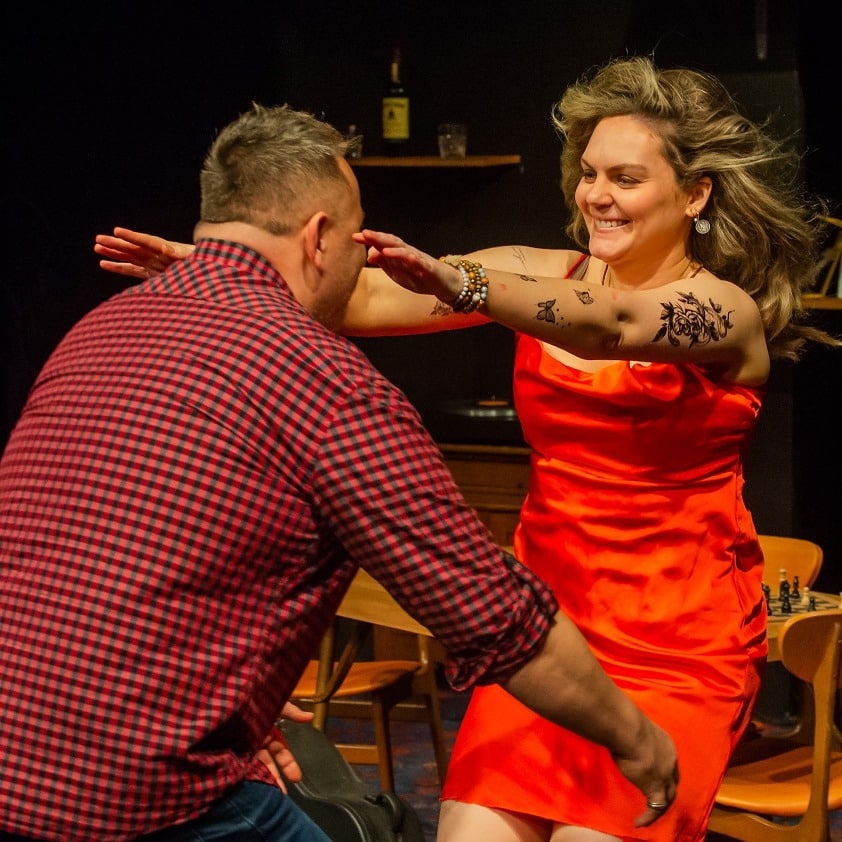The big energy opening number to MARVELous: A Risque Parody gave the audience a taste of what was to come. There were showgirls dressed in sexy red, white and blue outfits, high kicking, singing and dancing around a muscular square jawed Captain America, played by Luka Lea-Vestic holding up his big round shield.
It was reminiscent to a scene from Captain America named “The Star Spangled Man with a Plan” except director, creator and composer Samwise Holmes cleverly wrote a parody called “The Man with America’s Ass” with lyrics such as “Who’s got a glorious gluteus maximus? The vote for the world’s greatest bum is unanimous. A posterior that’s all class. The man with America’s Ass”!
From here I guessed that this was going to be a mix between a satirical musical, a flamboyant gathering of colourful costumes and cheeky burlesque dancing. What I didn’t foresee was another layer – one which involved not only raunchy strip dancing, but dancing in many different styles, including a ballet act, dancing using a whirlpole and a modern puppet master dance led by Scarlet Witch, played by Brea Holland. Added into the mix was a good dose of aerial and stage acrobatics, with risqué humour woven in. Listening to the audience’s reaction to the performances around the theatre, it was clear that MARVELous was hitting all the right notes!
Each performance involved a seperate Marvel character act, unique to them and was unrelated to others. There was not a storyline from start to finish, rather a series of acts where the Marvel characters embodied their character traits and special powers. They performed a particular dance, sometimes singing along to parodies of a well known scene from a movie. When they were not performing as their main Marvel character, the cast of 12 supported each other by playing other roles onstage.
One stand out performance was by Megan Wonfor, who played Black Widow. Her fight scene with two ninjas dressed head to toe in black was phenomenal. The three of them did a “dance fight” full of acrobatic tumbles and sharp acrobatic leaps, all in time to music. It was visually one of the most beautiful fight scenes I’ve ever seen!
Another performance I really enjoyed was from Fat Thor, played by Thomas Remaili, who used the pole in his routine and made climbing up it and hanging off at zig zag angles look easy, despite wearing croc slip on shoes and having his legs and arms covered, which left me wondering how he was able to grip the pole. His huge prosthetic belly didn’t hinder Fat Thor as he performed his routine, and his humour had the audience laughing and cheering him on.
Deadpool, played by Justin Wise, was the show’s sassy narrator. When he was onstage, his role as the storyteller appeared to be more of a stand up comedian and involved him bantering with the audience to bring the show to a more personal level.
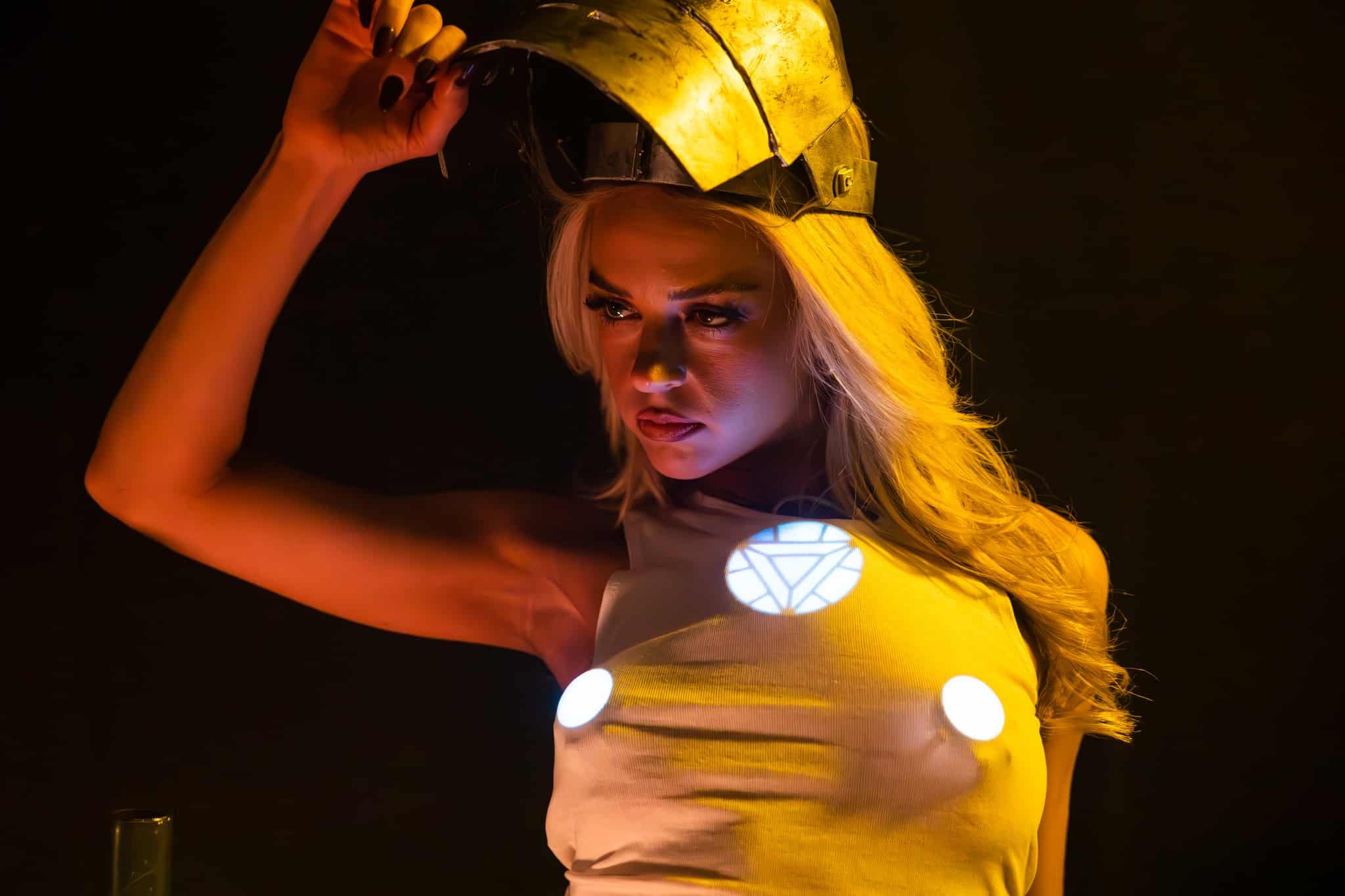
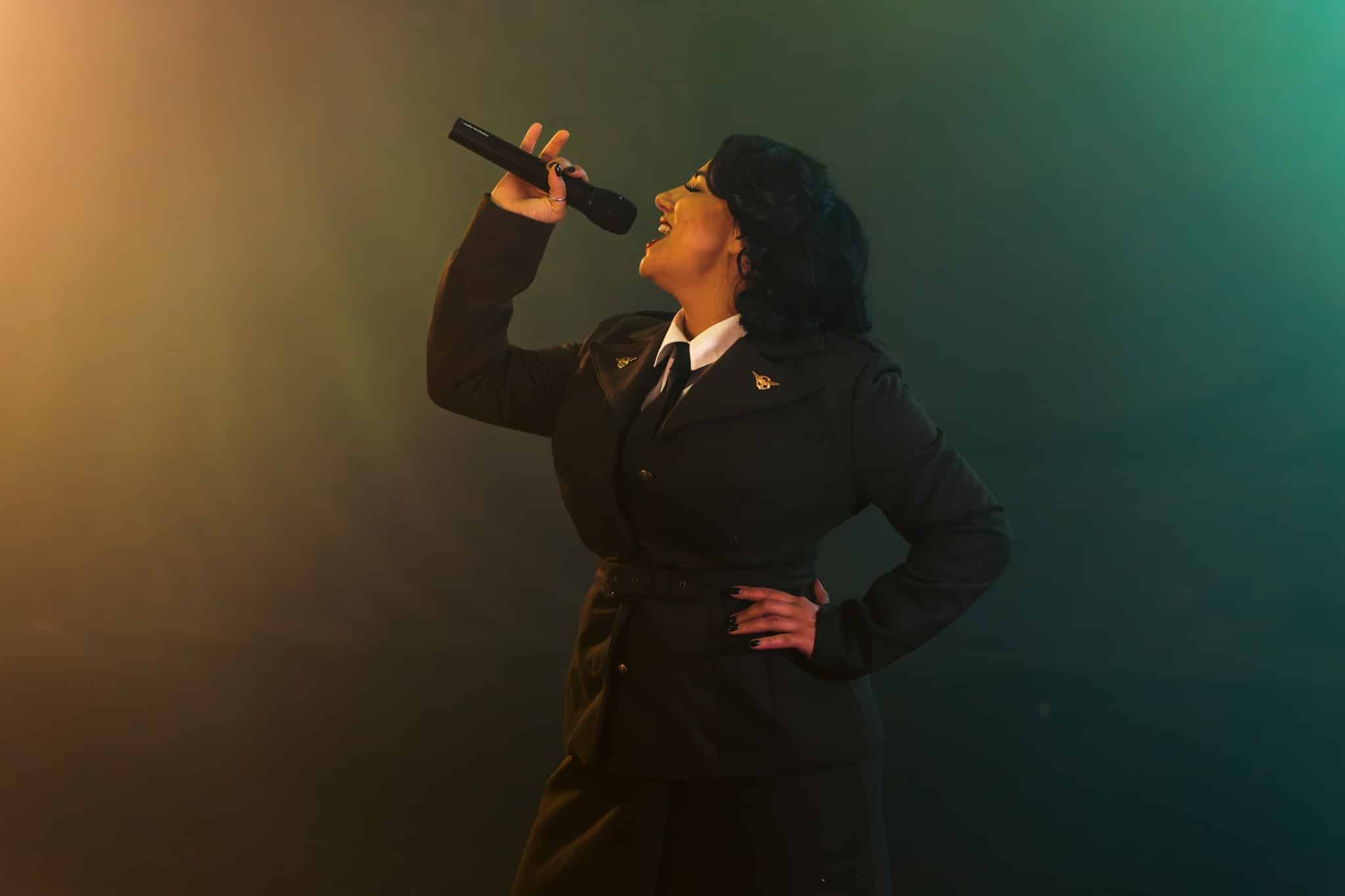

The choreography of all the dance acts was so varied, and executed with precision by the actors. If all the dance routines were too similar, it would have been a lacklustre show. Choreographer Luka Lea-Vestic ensured that audiences would be treated to a mix of styles that captured our attention.
James Wallis’ lighting, in combination with the creative three-story cityscapes scaffolding set design by Dan Potra, was effective throughout the show to both elevate the vibrancy of the mood and to build the suspense in darkened scenes. In one performance Iron Woman, played by Lulani Rawson, led a multi woman lineup of Marvel characters in a dance, with each performer using her lights on her hands to create exciting paths of lights into the audience as the male performers lit them up from behind. This was a mesmerising scene.
Action Reaction Entertainment have brought a dynamic show to the Chatswood Concourse theatre for fans of the Marvel Cinematic Universe. There were cheers and laughter as they understood and appreciated the jokes and references throughout the performance. Even if you weren’t familiar with all the characters, there were acts which brought in parodies of some very well known musicals as well. Despite some opening night hiccups with the sound, the soundtrack paired with the casts’ high energy performances ensured the audience had plenty of laughs and a MARVELous night out.
MARVELous: A Risque Parody is playing at the Chatswood Concourse.
Be aware that it is an 18 + event.
Show Run: Friday 26 July – 10 August 2024
Tickets: from $59 – $125
www.marveloustheshow.com.au
This review also appears on It’s On The House. Check out more reviews at Whats The Show to see what else is on in your town.

